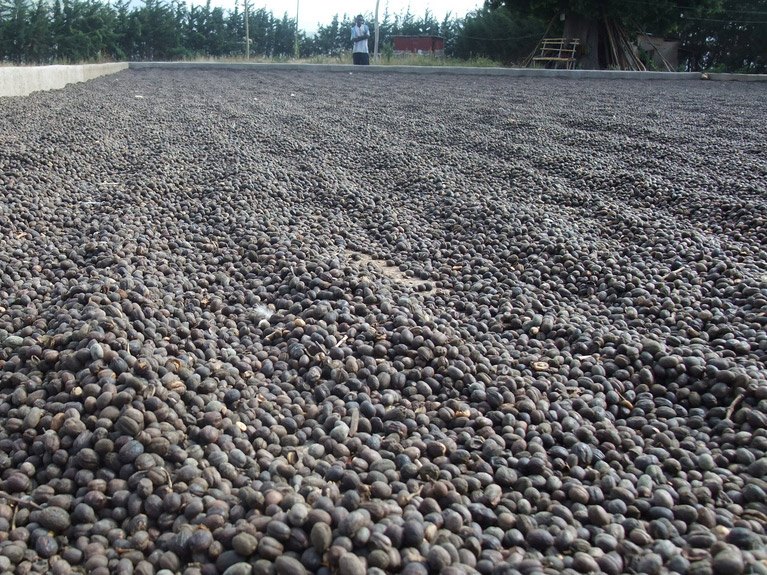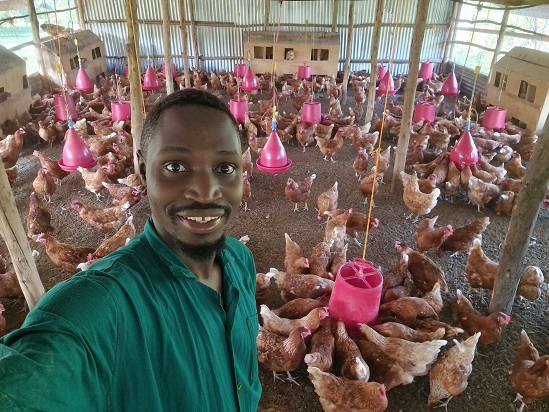By Denis Jjuuko
The locusts may have dominated the news for the last week relegating some more important news to the inside pages of our newspapers and none at all on social media, major platforms through which information is shared and consumed in Uganda today!
The memes on social media were as hilarious as they could be.
As locusts were dominating social media banter, came Valentine’s Day with its share of memes especially the fictitious Men’s Conference, one of the most trending topics in the region and beyond.
About 1200km away from Kampala, on the beaches of Mombasa, something that could get our country out of poverty was taking place.
Coffee experts, government officials, and business people sat over coffee to discuss issues affecting the industry in Africa.
One of the speakers according to The East African, a regional newspaper, was Dr Emmanuel Iyamulemye Niyibigira, the Executive Director of the Uganda Coffee Development Authority.
He had very good news: Uganda’s coffee production in the financial year 2018/19 stood at 6.95 million bags, an increase of 21% from 5.67 million bags in the same period a year before.
Uganda’s target by this year was 20 million bags of 60kg each before the target was revised.
The pessimists may laugh about this because we are more than 13 million short of the target. However, optimists like yours truly celebrated. At one stage, the 20 million bags will be possible.
How did this happen? “This is a result of coffee maturing that was planted before,” Dr Niyibigira told The East African.
At the same conference in this coastal city, Owek Robert Waggwa Nsibirwa, the Second Deputy Katikkiro was honoured with a lifetime award by the African Fine Coffees Association. He is an astute businessman involved in the coffee business and its value chain.
His award and indeed the performance of Uganda’s coffee industry reminded me of the Mmwanyi Terimba campaign launched by Katikkiro Charles Peter Mayiga a few years ago. Many people especially in Buganda, one of Uganda’s biggest coffee growing regions had given up on the crop in favour of chasing deals in the city.
It is not uncommon to find 20 boda bodas at a stage in a trading centre where hardly anyone uses any form of motorized transport. Although people may need daily incomes to survive, there are hardly any jobs in the city. Agriculture given Uganda’s arable land and a favourable climate even when there are now variations in weather patterns is still one of the sectors we can bank on to get ourselves out of poverty.
As Mayiga and his team moved about in the vast territories of Buganda showing people that coffee is still profitable, a few young people started taking his message and started growing it. I was once impressed in Bukomansimbi to find young people busy in their coffee gardens.
Such youths call these gardens, Kabaka’s Coffee, and they do anything to ensure that they are looked after properly. Kabaka’s Coffee can’t be seen to be in a bad state!
I also have friends who own a coffee farm in Mawogola whose interest was ignited by the Mmwanyi Terimba campaign. In fact, they call their group Mmwanyi Terimba.
Last year, they made their first harvest of coffee and Matooke as well.
For full disclosure, I am a happy recipient of one of the first bunches of Matooke from their garden.
The harvest by my friends in Mawogola and many others across the region must be some of the coffee that is yielding and increasing the number of bags Uganda is exporting, a direct result of Mmwanyi Terimba among other initiatives by not only Buganda but other stakeholders as well.
Although Uganda is increasingly becoming a formidable force in the coffee exporting market in the region, there is need to now add value to it. Over 98% of the coffee consumed in Uganda is exported as raw materials, imported back and then sold at a premium as instant coffee powder. Why don’t we add value here and we consume it here than first taking it to Europe? We can export the excess powdered just like Brazil.
Secondly, in Buganda we hardly wash our coffee yet if washed, Robusta attracts a premium price. In the 1960s/70s, 60% of exported Robusta from Buganda and Busoga was washed. A kilo of washed Robusta sells a dollar more than the unwashed one. We don’t have to go very far to learn this because in Bugisu, Arabica is washed. We can take a trip there and learn from them.
Thirdly, we can brand our coffee. Robusta from Buddu is different from Robusta from Kyaggwe. By branding it according to its origin, the product would easily become a premium product coffee connoisseurs look out for.
By not adding value, we miss out on creating more jobs in the coffee value chain which leads to low returns for our farmers. Growing coffee, although not rocket science, it isn’t for the faint-hearted as it needs some patience. Adding value to it would improve returns farmers get and get more people out of poverty.
The writer is a communication and visibility consultant. djjuuko@gmail.com





